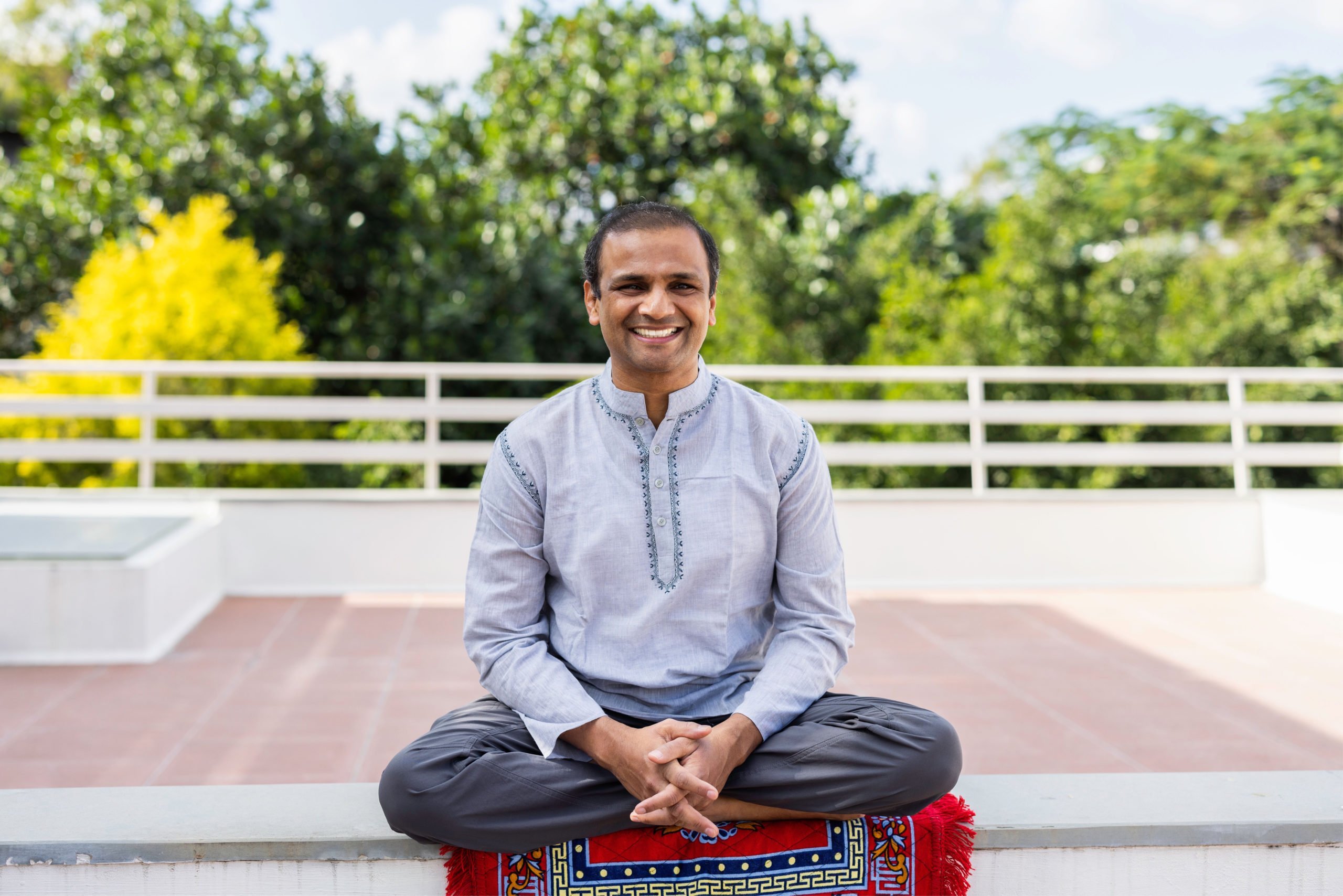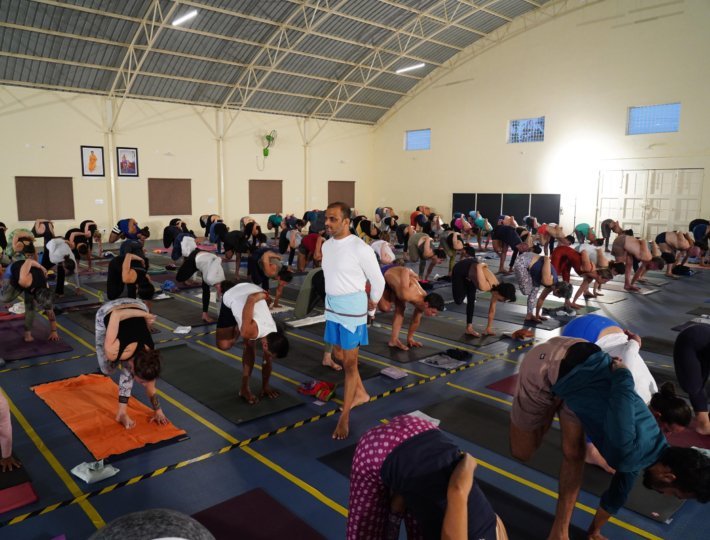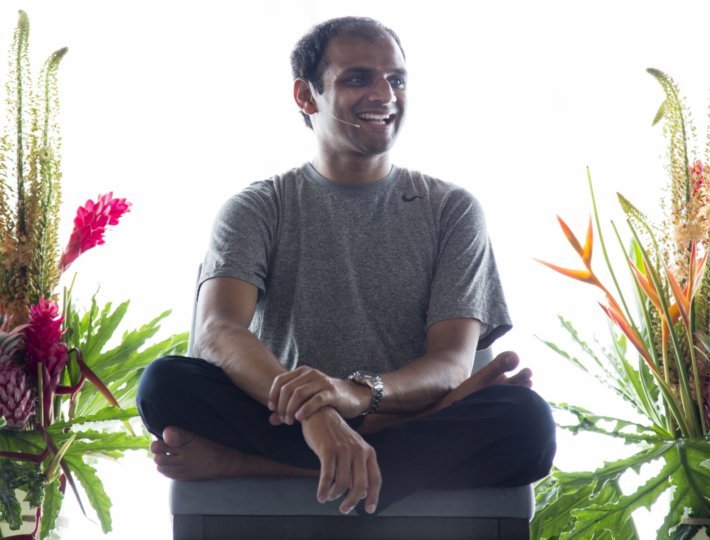I had never given much thought to the thickness of my cerebral cortex or the volume of my brain, nor had I considered how increasing them would help regulate my attention span and emotions.
But this, experts tell us, is what happens when we meditate. It’s the science behind the fad that makes “mindfulness”—simply the awareness of what we are thinking at any given moment—the antidote to our ADHD way of life. It’s why seemingly everyone you meet has tried it or plans to.
I’m one of millions—or, one of “them,” as a co-worker put it—who meditates daily. Even without a brain scan, I can tell you that it has been properly pumped up. A recent checkup also reports that my cholesterol, blood pressure, resting heart rate, and a half-dozen other health metrics are at their all-time best. Studies tell me that meditation has something to do with this as well.
But the numerical aspect of my well-being is much less important to me than how I feel, and my life has been undeniably richer. I feel unhurried, sharp, focused, patient, and more at ease with others and myself than I can remember. Friends have even commented on my social media postings, asking if my account has been hacked by some Russian gang that posts pictures of dogs, roses, kids, and sunsets with some nefarious intent. But nope, it’s just me.
To be clear, I’m not an ashramy guy. I don’t burn incense, wear hemp, or quote the Upanishads. I didn’t have some blinding moment of enlightenment.
I spent much of my adult life like most everyone: building a career and raising a family, but over time life gets complicated, and it’s easy to get swept up in the stresses of everyday life and the tidal wave of hormones—cortisol, adrenaline, and norepinephrine—that make us frantic, reactionary, and overly sensitive.
For me, that meant that I became, at times, “that guy.” The impatient one in the Starbucks line talking about work on my phone like I was negotiating a NATO treaty; the coach in youth soccer who told a kindly, annoying ref named George to go &%$* himself; the distracted father and husband who monitored his email like the Nikkei.
The things we sacrifice when we are reacting our way through life are significant, and I knew I needed change. In search of clarity, I began to meditate. I started slowly, a few days a week, 10 minutes at a time. Today, six months later, I meditate most days for 20 minutes.
It’s not mysterious. I simply sit flat-footed in a straight-backed chair and take five deep breaths, in through the nose, out through the mouth, to get started. I mentally scan my body for tension or discomfort and then continue to breathe steadily through my nose, counting breaths to keep my mind focused on the rise and fall, not on my runaway thoughts. When my mind wanders—and it always does—I simply note it and return to my breath. At the end, I give myself permission to think of anything, anything at all, and my mind paradoxically goes blank for 20 or more seconds. Blissfully blank.
Related: Discover how attention to breathing can provide powerful health benefits.
Even with hundreds of hours of meditation behind me, I continue to marvel at how busy my mind can be, but I am even more amazed that I can climb outside my thoughts, that they don’t define me but are rather “like traffic in the street” in front of me, as one guided meditation said. I find that my emotions no longer drag me around like a dog on leash.
Meditation has “worked” for me, but on the rare occasions when I talk about it, I find myself focusing on the one result that I haven’t read or heard much about. Sitting regularly in silence, aware of my thoughts, has lengthened the space of time between stimulus—a thought provoked by something I see or hear—and my reaction to it.
Until I began my practice, I hadn’t realized that this space existed and that what I did with it determined so much in my life. That sliver of time between a comment from a spouse or friend, or getting cut off in traffic, or a frustrating lack of cell coverage and our reaction to it is where contentment lies.
That sliver of time between a comment from a spouse or friend, or getting cut off in traffic, or a frustrating lack of cell coverage and our reaction to it is where contentment lies.
It’s not easy. The space between is not filled with silence that lets you think but with a rush of clanging emotions, regrets, longing, and fear—some of it fresh, but some of it from so long ago that you can’t even define it. When I meditate regularly, I find that in these moments I can let all of this noise simply fall away, like silt to the bottom of lake. This leaves me with the ability to see each unique situation clearly, to choose my reaction.
Since I’ve been meditating, I find that I increasingly choose wisely and that life is simpler when I do and, apparently, healthier.
So don’t let what you see and read fool you. Meditation is not one thing to all people. It’s not a quick fix or a simple cure to stresses large and small. It’s a way to be more aware of the choices we all have each day. What you choose is up to you.
Related: Check out our simple guide to the many different types of meditation and learn how to get started.









Comments (0)